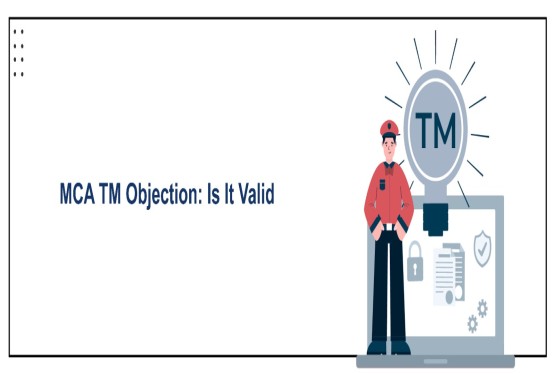Form INC-20A is a statutory compliance requirement under the Companies Act, 2013, which mandates that every company incorporated on or after 2nd November 2018 and having share capital must file this declaration before it commences its business activities. This declaration is not just a procedural formality; it serves as a legal assurance that the company is operationally and financially ready to begin business and has fulfilled certain preconditions laid down by law. The requirement was introduced via the Companies (Amendment) Ordinance, 2018, and has since become an essential compliance step in the company incorporation process.
Purpose and Legal Basis of Form INC-20A
The primary purpose of filing Form INC-20A is to inform the Registrar of Companies (ROC) that the company has received the full value of the shares subscribed to by the promoters, and that it has a verified registered office. This form is a declaration under Section 10A of the Companies Act, 2013, and is further governed by Rule 23A of the Companies (Incorporation) Rules, 2014. It is to be filed online by the company’s directors and must be digitally signed. This declaration must be filed within 180 days from the date of incorporation. The Companies Act strictly prohibits any company from commencing business activities such as entering into agreements, raising funds, making purchases, or issuing shares unless and until Form INC-20A has been duly filed and approved by the ROC.
Applicability of the Requirement
The applicability of Form INC-20A extends to every company that is incorporated on or after 2nd November 2018 and has a share capital. It is important to note that this requirement is not applicable to companies that were incorporated prior to 2nd November 2018 or to companies that were incorporated without share capital. The rule has retrospective effect, meaning that any company formed on or after the said date must comply, regardless of when the law was formally enforced.
Filing Requirements and Procedure
Form INC-20A must be filed by the director of the company and the declaration needs to be verified by a practicing professional such as a Chartered Accountant, Cost Accountant, or Company Secretary. The declaration affirms that all the subscribers to the Memorandum of Association have paid the value of the shares they agreed to subscribe. The proof of such payment is mandatory, and the amount must be deposited in the company’s bank account. Even if the promoters make the deposit in instalments, the total deposited amount must be exactly equal to the paid-up share capital declared during incorporation.
Additionally, the company must also have verified its registered office with the ROC through the necessary compliance filings under Section 12 of the Companies Act. The list of subscribers and their respective shareholding commitments can be cross verified by referring to the last page of the company’s Memorandum of Association.
Restrictions Before Approval
No company is legally permitted to carry out any commercial activity before filing and obtaining approval of Form INC-20A. Any business transaction, such as sales, purchases, borrowing funds, or issuing shares before the form is approved, is considered illegal and voidable under the Companies Act. The law thus ensures that a company is not merely incorporated on paper but is also financially functional before it enters the commercial ecosystem.
To read more about case commentaries on INC 20A.
Consequences of Non-Compliance
Failure to file Form INC-20A within 180 days from the date of incorporation has serious legal consequences, which need to be closely monitored by company advisory The company may face heavy penalties, and more significantly, the Registrar of Companies is empowered to strike off the name of the company from the register. If the company does not commence its business within one year of incorporation and has not filed INC-20A within the stipulated 180 days, it is deemed as non-functional. In such cases, either the ROC may initiate the process of strike off Suo-motu, or the company itself may apply for voluntary closure.
Strike Off Process under Section 248(1)
There are two recognized ways in which a company can be struck off if it fails to comply with the INC-20A requirement. First, the ROC may issue a notice in Form STK-1 under Section 248(1) of the Companies Act if it has reasonable grounds to believe that the company has not commenced its business within one year and has failed to file Form INC-20A within 180 days. This is known as a suo-motu strike-off by the Registrar.
Second, the company can itself apply for strike-off by filing Form STK-2 after completing one year from the date of incorporation. This is applicable if the subscribers have not deposited the subscription money, the form has not been filed, and the company has not begun its operations. This voluntary strike-off can help the company avoid paying additional penalties and comply with closure norms.
Prerequisites for Filing Form INC-20A
Before a newly incorporated company can begin its business activities or exercise any borrowing powers, it must file Form INC-20A with the Registrar of Companies (ROC) as per Section 10A of the Companies Act, 2013. However, this filing is subject to several important prerequisites that ensure the company has fulfilled its foundational obligations. These prerequisites are essential to demonstrate that the company is financially operational and legally structured as per statutory requirements.
Declaration by Directors through Board Resolution
One of the primary prerequisites is that the directors of the company must pass a board resolution declaring that the company is ready to commence business. This resolution is made under the authority of Section 10A and is a formal declaration of the intent to begin operations. The resolution typically confirms that the subscribers have paid the share capital and that other legal and banking requirements have been fulfilled.
Deposit of Paid-Up Share Capital by Subscribers
Another fundamental requirement is that each subscriber to the Memorandum of Association must deposit the value of the shares they have agreed to take. This capital must be deposited into the company’s bank account. The entire paid-up capital must be received by the company either as a single transaction or in multiple tranches and documented through proper banking channels. This serves as financial proof that the company is not merely registered but is also adequately funded to begin its operations.
Submission of Proof of Capital Deposit
To validate the deposit of capital, the company must attach the bank statement of the company’s current account, showing credit entries corresponding to the subscription money received from each shareholder. If applicable, the receipts or challans proving such deposits may also be attached. This serves as strong evidence to the ROC that the capital has actually been realized, and not merely promised.
Verification by a Practicing Professional
Form INC-20A must be digitally verified and certified by a practicing Chartered Accountant (CA), Company Secretary (CS), or Cost Accountant. The professional ensures that the information declared in the form is true and accurate and that the necessary documents have been reviewed and verified. Without this professional certification, the form is considered invalid and will be rejected by the ROC.
Timely Filing within 180 Days
This declaration must be submitted within 180 days from the date of incorporation. Filing beyond this period is not only a violation of Section 10A but also attracts penalties and other consequences, including the possibility of the company being struck off from the ROC records. Hence, strict adherence to this timeline is important.
Applicability of Form INC-20A
Form INC-20A is not universally applicable to all forms of business entities. Its applicability is governed by specific rules under the Companies Act, 2013 and is limited to certain categories of companies. Understanding which companies are required to comply and which are exempt is essential for regulatory compliance.
Companies to Which Form INC-20A is Applicable
Form INC-20A is mandatory for every company that meets both of the following criteria:
-
It was incorporated on or after 2nd November 2018; and
-
It has share capital.
If these two conditions are met, filing Form INC-20A is compulsory before commencement of business. The following types of companies are explicitly covered under this mandate:
-
Private Limited Company: This includes standard private companies that are closely held by a small group of shareholders.
-
One Person Company (OPC): Even if it has only one member, if the OPC is incorporated after 2nd November 2018 and has share capital, it is bound by this compliance.
-
Public Limited Company: Companies offering shares to the public fall within this category and must also comply with the declaration requirement.
-
Section 8 Company (Non-profit Organization): If incorporated as a company with share capital, even charitable or not-for-profit entities under Section 8 must file Form INC-20A.
Thus, regardless of the nature or objective of the company, if it is incorporated post-November 2, 2018, and has share capital, the filing of Form INC-20A is legally binding.
Companies Exempted from Filing Form INC-20A
The law also clearly exempts certain companies from the requirement of filing Form INC-20A, either due to the date of their incorporation or their structural nature. These include:
-
Companies incorporated before 2nd November 2018: Since the amendment introducing Section 10A came into effect from this date, companies formed before this do not fall under its ambit.
-
Companies registered without Share Capital: If a company does not have any share capital, then it is not required to file Form INC-20A, regardless of its date of incorporation.
-
Government Companies exempted by special provisions: Certain government companies may be specifically exempted under separate provisions or notifications issued by the Ministry of Corporate Affairs.
-
Entities not registered under the Companies Act, 2013: Forms such as proprietorships, partnerships, and Limited Liability Partnerships (LLPs) are governed by different legislations and are not required to file Form INC-20A.
Consequences and Penalties for Non-Filing of Form INC-20A
Filing Form INC-20A within 180 days from the date of incorporation is mandatory under Section 10A of the Companies Act, 2013. Failure to file this declaration not only affects a company's legal standing but also triggers statutory penalties and operational restrictions. The law takes non-compliance seriously, as Form INC-20A ensures that only genuine companies with actual capital infusion and intent to do business are allowed to operate.
Monetary Penalties on the Company and Directors
The Companies Act imposes financial penalties on both the company and its officers in default, primarily the directors responsible for regulatory filings.
-
The company is liable to pay a penalty of Rs.50,000 for failure to file Form INC-20A within the prescribed 180-day period.
-
In addition to the company, every officer who is in default, typically including the directors, is liable to pay a penalty of Rs.1,000 for each day of default, subject to a maximum of Rs.1,00,000 per person.
These penalties are levied automatically upon detection of non-compliance, and no leniency is generally extended unless a valid reason with supporting evidence is provided to the Registrar of Companies (ROC).
Operational Restrictions and Ineligibility for Transactions
A company that fails to file Form INC-20A is prohibited from commencing any business activity or exercising any borrowing power. In legal terms, such a company is deemed "inactive" until the declaration is filed and approved.
This leads to the following operational consequences:
-
The company cannot enter into valid contracts or legally enforceable agreements.
-
It cannot raise capital from investors or financial institutions.
-
It is barred from issuing shares or allotting securities.
-
Banks may refuse to open or operate the company’s account for business purposes.
-
Any business activities conducted during this period may be considered void or unauthorized, exposing the company to future litigation or audit scrutiny.
Hence, operational restrictions act as a serious deterrent, especially for startups or growing businesses that need early-stage capital and contractual freedom.
Strike-Off by Registrar of Companies (ROC)
If the company fails to file Form INC-20A within 180 days and fails to commence its business operations within one year of incorporation, the ROC is empowered to initiate the process of striking off the company from the official register under Section 248(1) of the Companies Act, 2013.
There are two ways this can occur:
-
Suo Motu Action by ROC: If the Registrar has reasonable cause to believe that a company has not filed Form INC-20A and has not started business, a notice in Form STK-1 is issued, initiating the strike-off process.
-
Voluntary Application by Company: The company itself may apply for strike-off by filing Form STK-2, especially if it does not intend to commence business and wishes to avoid further penalties.
Strike-off results in dissolution of the company, meaning it loses its legal identity and can no longer carry out any business operations or hold assets in its name unless revived through a tribunal.
Negative Compliance History and Regulatory Scrutiny
Non-compliance with initial incorporation obligations like Form INC-20A creates a negative compliance record for the company and its directors in the eyes of regulatory authorities, financial institutions, and investors. This can lead to:
-
Increased scrutiny in future filings and inspections.
-
Rejection of credit or funding applications.
-
Disqualification of directors in persistent default scenarios.
-
Ineligibility for certain government schemes or incentives.
This tarnished compliance history may also impact the creditworthiness and business credibility of the company in the market.
How to File Form INC-20A: Declaration for Commencement of Business
Filing Form INC-20A is a statutory requirement under Section 10A of the Companies Act, 2013, applicable to all companies incorporated on or after 2nd November 2018 with share capital. The form is filed electronically through the MCA portal by a director of the company and must be certified by a practicing professional—Chartered Accountant (CA), Cost Accountant, or Company Secretary (CS).
This filing is a one-time declaration, confirming that the company has received the subscription money from all subscribers to the Memorandum of Association and that the business is ready to commence legally.
Who Can File Form INC-20A?
Form INC-20A can be filed only by a director of the company authorized via a board resolution. The form must be digitally signed by:
-
The authorized director, and
-
A Chartered Accountant, Cost Accountant, or Company Secretary in full-time practice who certifies the authenticity of the information.
As the appointment of a statutory auditor is mandatory within 30 days of incorporation, in most practical scenarios, the appointed auditor certifies and files the form.
Documents and Information Required
To successfully file Form INC-20A, the following documents and details must be prepared in advance:
-
Corporate Identity Number (CIN) of the company.
-
Name of the company and its registered office address.
-
Latitude and Longitude of the registered office (geolocation data).
-
Email ID of the company.
-
Bank statement of the company’s account showing credit entries of the subscription money from each subscriber.
-
Photographs of the registered office (external view of the building and internal view with at least one director/KMP present).
-
Copy of the Board Resolution authorizing the filing of Form INC-20A.
-
Digital Signature Certificate (DSC) of the director authorized to sign the form.
-
Digital Signature and membership number of the CA, CS, or Cost Accountant certifying the form.
Step-by-Step Procedure to File Form INC-20A on MCA Portal
Step 1: Download the Form
-
Visit the MCA portal.
-
Click on "MCA Services" and select "e-Filing".
-
From the dropdown, choose "Company Forms Download".
-
Scroll to “Informational Services” and download Form INC-20A and its Instruction Kit.
Step 2: Fill in the Company Details
-
Open the downloaded PDF Form INC-20A.
-
Enter the Corporate Identification Number (CIN).
-
Click on “Pre-Fill”. This will auto-populate company details like name, address, and email ID.
Step 3: Attach Required Documents
-
Upload the bank statement showing capital credits from subscribers.
-
Attach photographs of the registered office as proof of business setup.
-
Upload the Board Resolution authorizing the director to file the form.
Step 4: Declaration and Verification
-
Enter the Director Identification Number (DIN) of the authorized director filing the form.
-
Fill the declaration and verification statement affirming that all requirements of Section 10A have been complied with.
-
Use the Check Form button to validate the entries.
-
Click Pre-Scrutiny to run a final system-level check.
Step 5: Digital Signatures
-
Affix the Digital Signature Certificate (DSC) of the authorized director.
-
Affix the DSC and Membership Number of the CA/CS/Cost Accountant who is certifying the form.
Step 6: Upload and Payment
-
Log in to the MCA portal using your credentials.
-
Under “MCA Services,” click on “Upload e-Forms.”
-
Upload the filled and signed Form INC-20A.
-
Make the prescribed payment of government fees (varies based on authorized share capital).
-
Once payment is successful, the system will generate a Service Request Number (SRN) and Acknowledgment.
Fees for filing e-Form 20A
-
The fees for filing Form 20A depend on the amount of share capital:
|
Share capital |
Fees (Rs) |
|
Capital Less than One lakh |
200 |
|
1.00.000 or above up to 4,99,999 |
300 |
|
5,00,000 or above up to 24,99,999 |
400 |
|
25,00,000 or above up to 99,99,9999 |
500 |
|
1,00,00,000 or above |
600 |
Conclusion
The non-filing of Form INC-20A represents a serious compliance default under the Companies Act, 2013, and can ultimately lead to the closure of company through the process of strike-off. This declaration is not merely a formality; it serves as the legal acknowledgment that the company is operationally ready, has received its subscribed capital, and is lawfully established to commence business. Failure to file the form within 180 days of incorporation, coupled with the company not initiating any business activity within one year, provides sufficient ground for the Registrar of Companies (ROC) to strike the company’s name off the register under Section 248(1). Whether initiated Suo-motu by the ROC or voluntarily by the company, such closure reflects the consequences of non-compliance and underscores the critical importance of fulfilling post-incorporation obligations. Therefore, the timely filing of Form INC-20A is not only a statutory mandate but also a safeguard against regulatory action and involuntary dissolution of the company.











































































_crop10_thumb.jpg)


































































_crop10_thumb.jpg)
_crop10_thumb.jpg)



_crop10_thumb.jpg)


_crop10_thumb.jpg)





_crop10_thumb.jpg)

_crop10_thumb.jpg)














-suratgujarat-section-158_crop10_thumb.jpg)
-suratgujarat_crop10_thumb.jpg)
-(33)_crop10_thumb.jpg)



-ahmedabad_crop10_thumb.jpg)
-learn_crop10_thumb.jpg)

-learnn_crop10_thumb.jpg)



























































_crop10_thumb.jpg)























_Guidelines_learn_crop10_thumb.jpg)























_learn_crop10_thumb.jpg)
_crop10_thumb.jpeg)










_crop10_thumb.jpg)




_Second_Amendment_Rules,_2025_learn_crop10_thumb.jpg)







_learn_crop10_thumb.jpg)











































_learn_crop10_thumb.jpeg)























_learn_crop10_thumb.jpg)



_rd_roc_learn_crop10_thumb.jpg)
















_learn_crop10_thumb.jpg)














_learn_crop10_thumb.jpg)
_Learn_crop10_thumb.jpg)











































_learn_crop10_thumb.jpg)




_learn_crop10_thumb.jpg)













_crop10_thumb.jpeg)




















